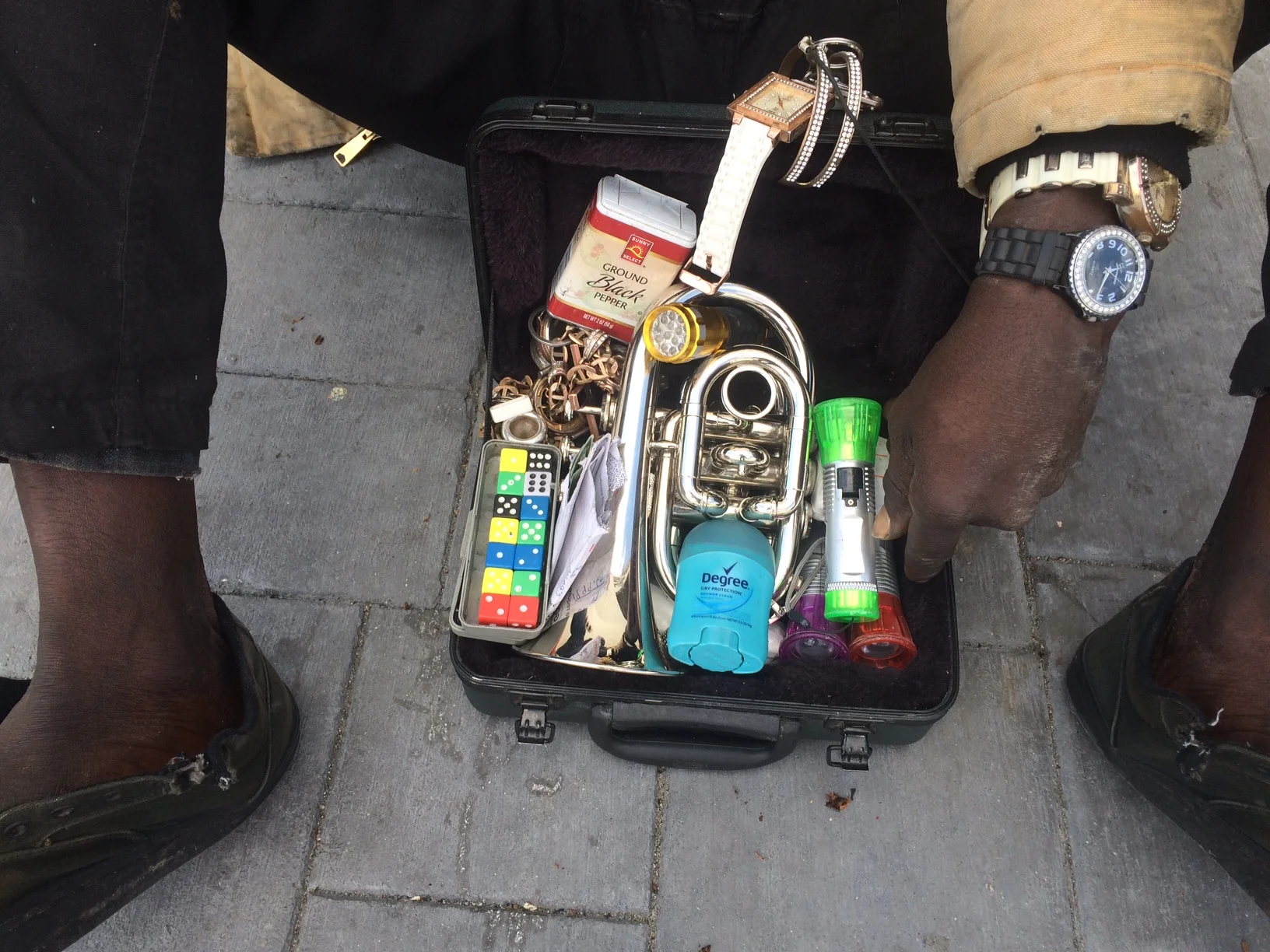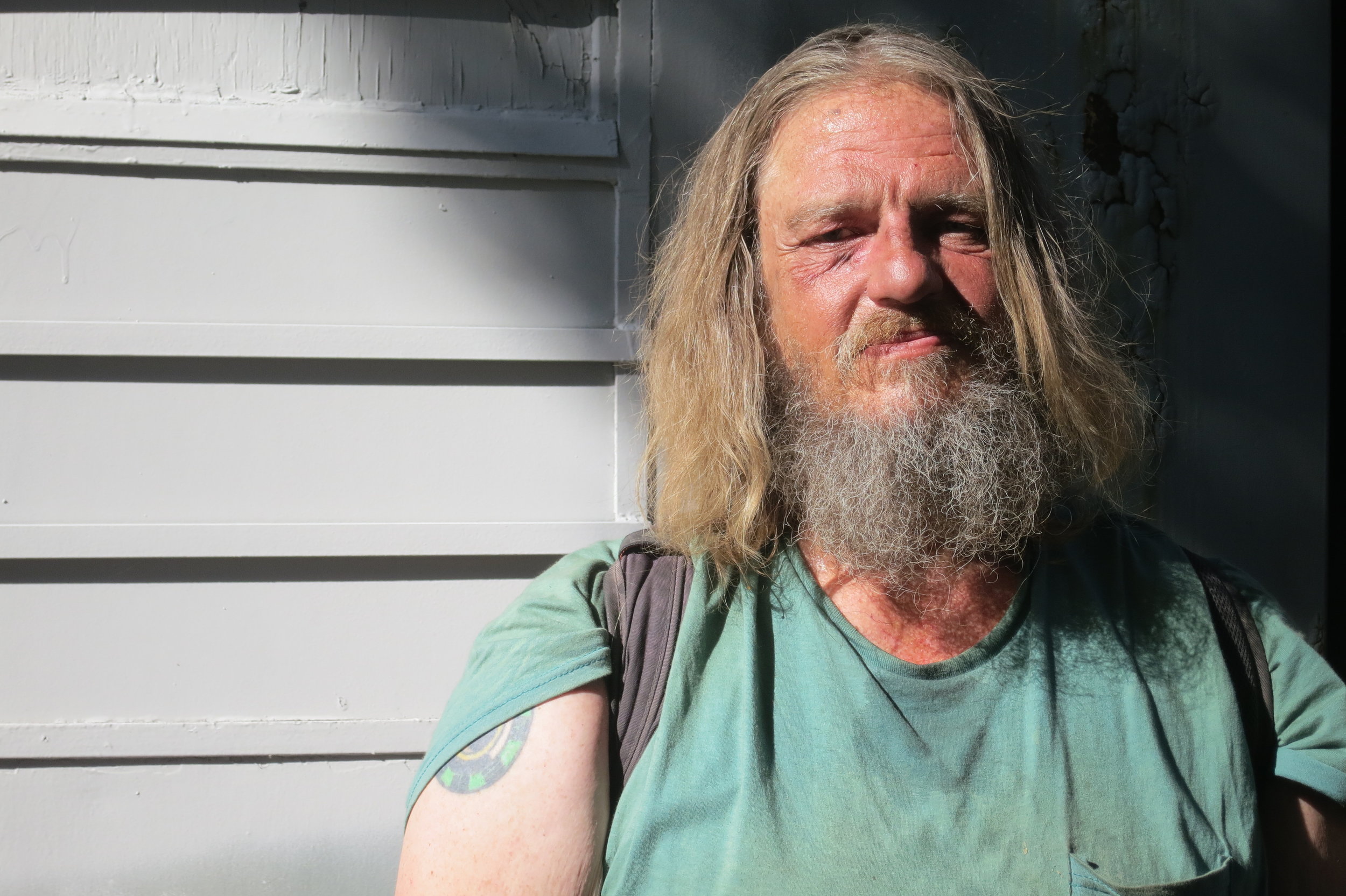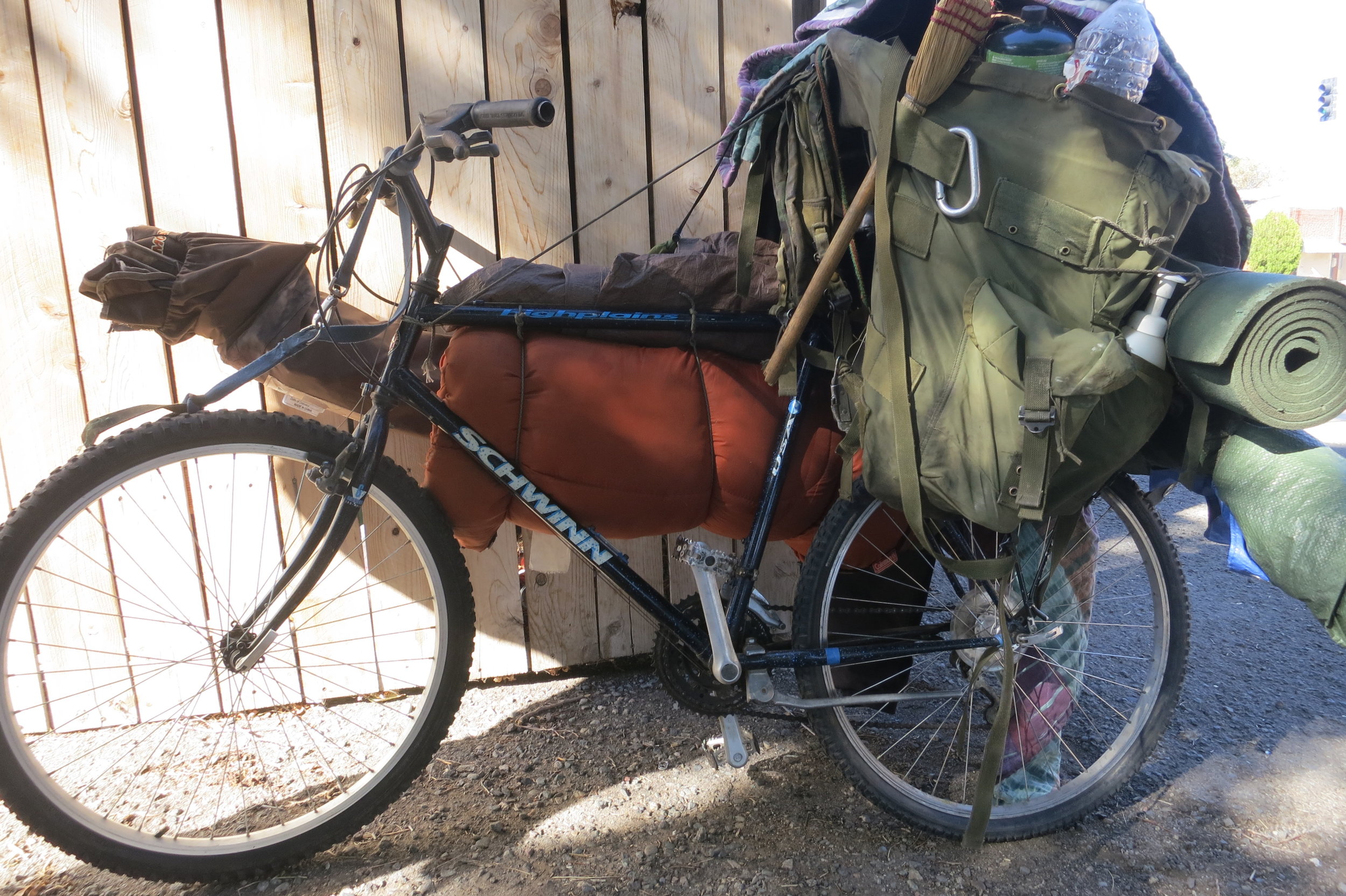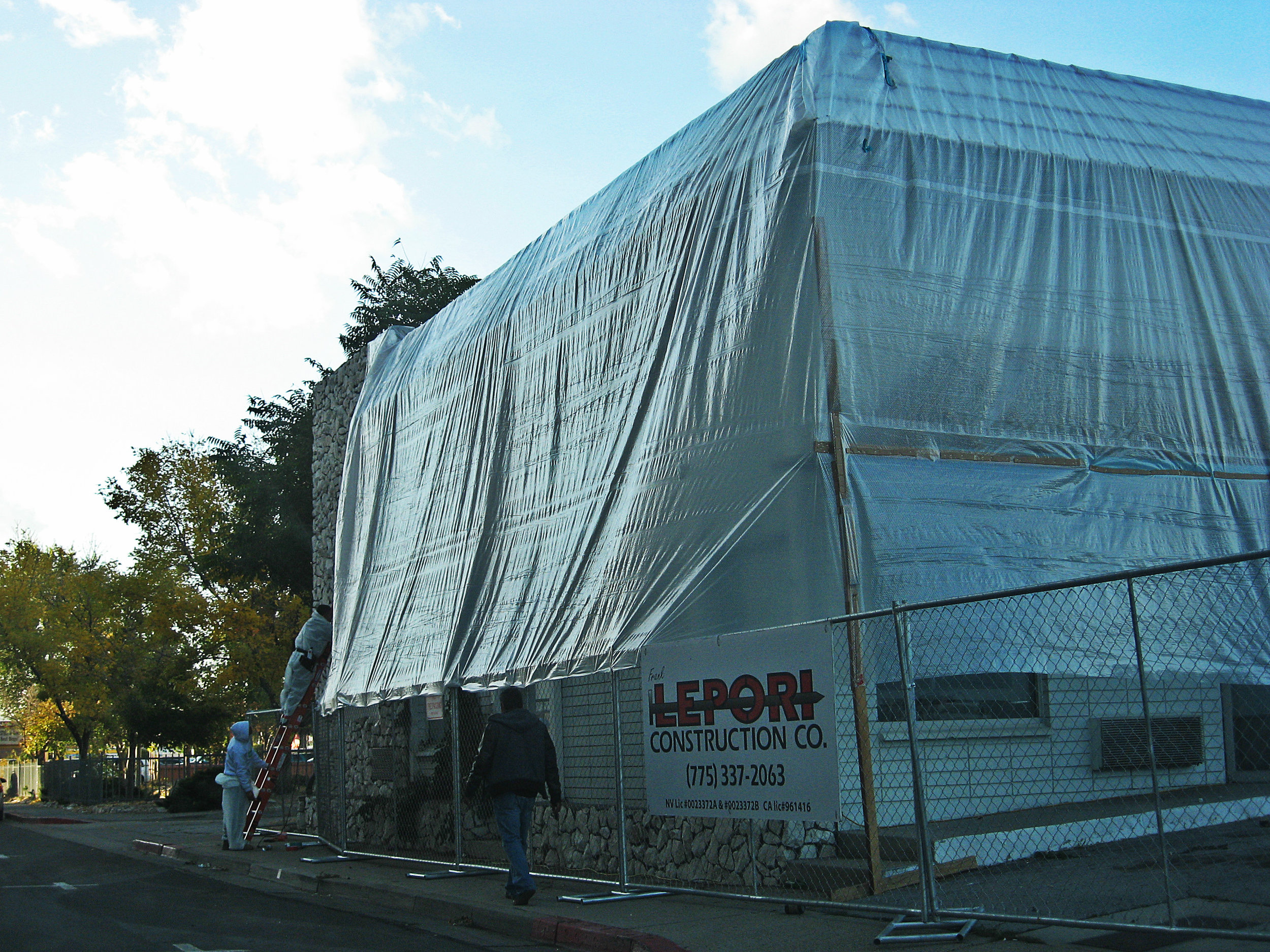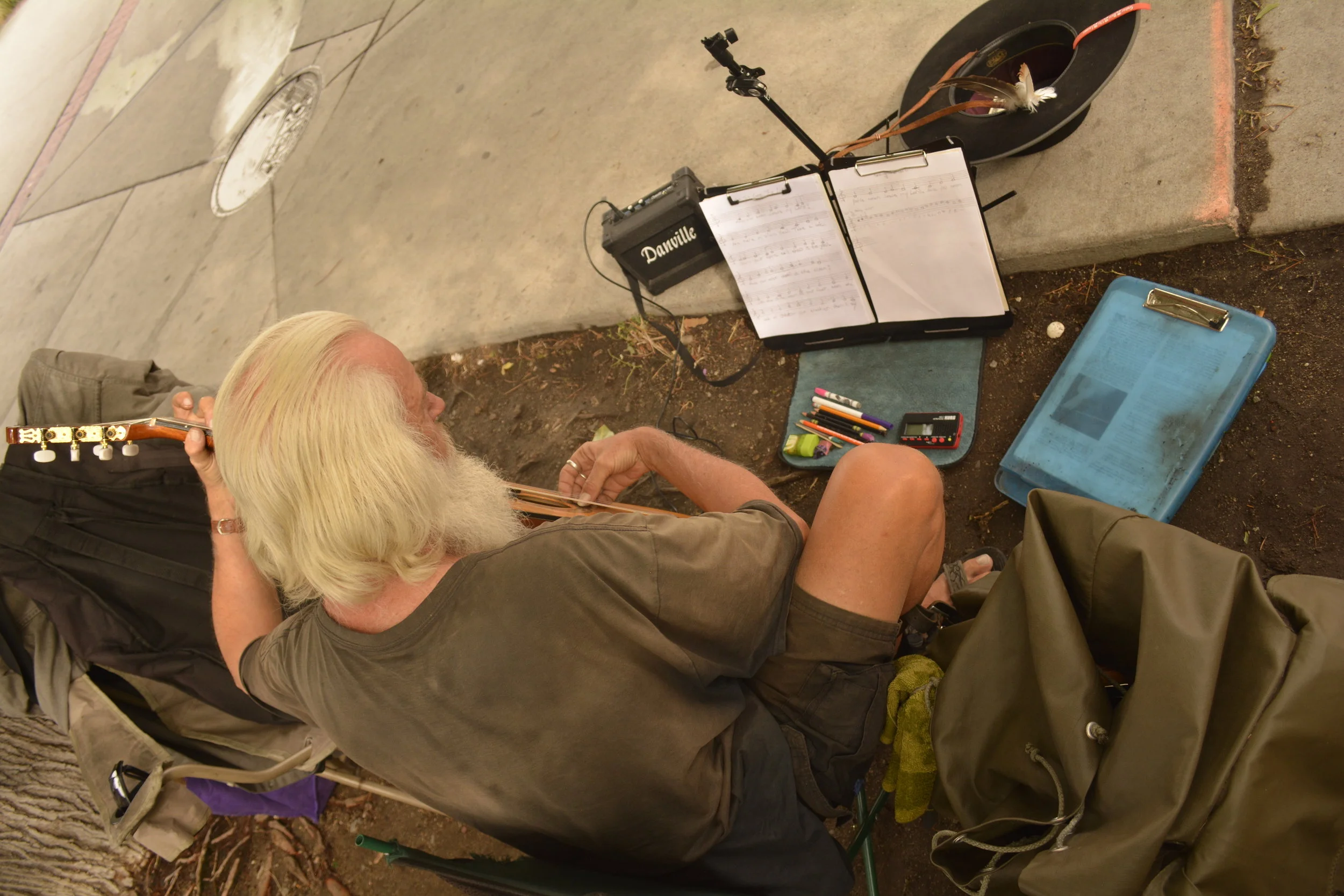Marie Miley recently moved to Reno from the Bay Area, enticed by lower rents, and easy to find work in temp agencies. But making choices based on finding cheaper rent has become a nightmare.
Just as she was able to sort out utility problems in her two-bedroom, $725 a month apartment she shares with her husband and young adult sons, Miley faces imminent eviction from the Stardust Apartments.
According to news reports this building was recently sold to California-based ‘Conventus Real Estate’, and all tenants were told in early November they had 30 days to move out. Photo by Prince Nesta
Ticking Clock
The clock is ticking. Miley found storage, but didn’t have money to afford a large storage so she had to cram her stuff in.
“We had to get a very tiny spot. So, things are crammed in and it's just not fair,” she said.
The scramble is on for Miley and several dozen others in her predicament still living at the Stardust Apartments pressing to find new lodging.
“We can't even find a place. You know some of us are looking at living in a motel because we can't find an apartment.”
Where to go Next?
There’s a move though in Reno to force motels to differentiate between long term and short term residents, and to have kitchenettes added to some rooms, which would add considerably to motel rates, reducing affordable options further.
Miley said some of the other tenants were paying rent as low as $500, monthly rates which have become harder and harder if not impossible to find in the current affordable housing crunch Reno is facing.
There have been relocation efforts and assistance offered, but for some of the tenant new livable solutions have yet to be found. Photo by Jordan Gearey for Our Town Reno
Unbearable Stress
Miley says the stress is nearly unbearable.
“I've been married 22 years and we've never had to deal with stuff like this,” she said. “So, it's extremely stressful. And then I was sick on top of it twice with strep and with bronchitis. So, trying to get better, trying to go to work …. And trying to move stuff out of the apartment and the storage all at the same time was extremely stressful. And I believe that's what kind of put my body down even more with another sickness, because I wasn't resting. I couldn't rest. And even now, we're sleeping on the floor, waiting for the other shoe to drop. And I can't sleep … I wake up maybe at two o'clock in the morning and I can't go back to sleep because I just keep thinking where are we going to go? I have kids. You know I don't want them having to be without a home.”
Miley described the predicament of others currently living at the Stardust and now fearing for their future. Photo by Jordan Gearey for Our Town Reno
Describing Other Residents in the Same Lurch
Miley says the situation for others in the building also breaks her heart. Many are on fixed income, and Social Security and/or disability payments don't bring what they used to in terms of housing.
“We have a lady downstairs there, she is in her 80s. She's blind…. And her son lives in Japan so he can't come over and help her. And so, she's relying on tenants that used to live here to help her. And then we have another gentleman downstairs who has cancer and he has a hard time getting around. We have another gentleman who is pretty much bedridden with an oxygen tank on him. And they don't know what they're all going to do. They're all kind of in the same boat. And it's pretty sad, because you know, we're all in the same boat.”
She is hoping for more help, especially with the holiday season and frigid nights just around the corner.
“I know that not everybody in this country has no compassion… They're throwing a lot of families out on the street on the holidays. We don't have money for Thanksgiving or Christmas… You know we were trying to rebuild our finances so that we can get into another place and that's extremely difficult. So yeah it would be nice if they had compassion and gave us a few months at least or try to rebuild around us so that we could stay and not have to go through this.”
Reporting for Our Town Reno by Prince Nesta with additional photos by Jordan Gearey









